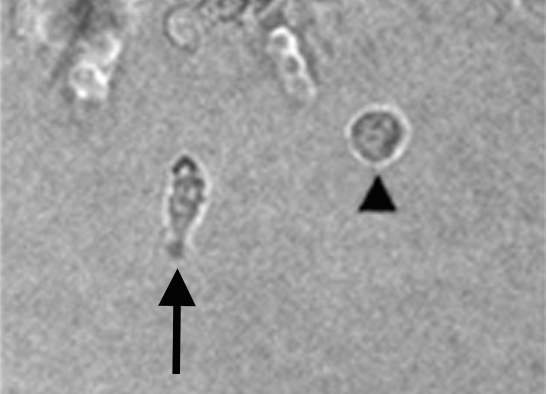Cancer biologists Jessica Konen and Scott Wilkinson, in Adam Marcus’ lab, recently published a paper on the function of LKB1, a gene that is often mutated in lung cancer cells. [Number three behind K-ras and p53.]

Mesenchymal shape is defined as having a length more than twice the width. Amoeboid looks more like the cell on the right: rounded up. Thanks to Jessica Konen for photo.
Konen and Marcus were featured in a prize-winning video that our team produced last year, which discusses how they developed a technique for isolating “leader cells” — lung cancer cells that migrate and invade more quickly — from a large group and studying those cells’ properties more intensively.
The Molecular Biology of the Cell paper covers a related topic: how LKB1 mutation affects cell shape. In particular, losing LKB1 converts lung cancer cells from a “mesenchymal” morphology to an “amoeboid” morphology. Read more




